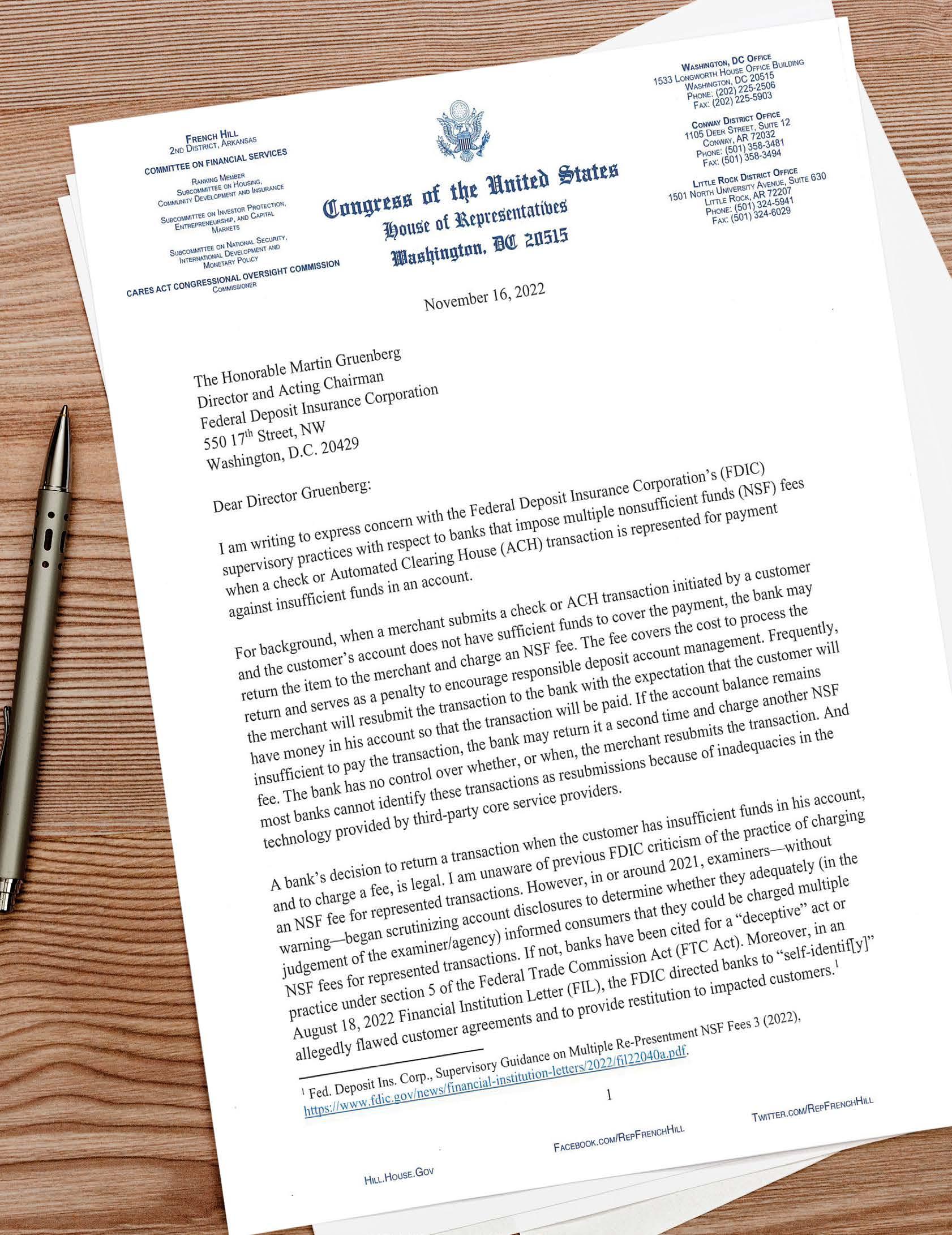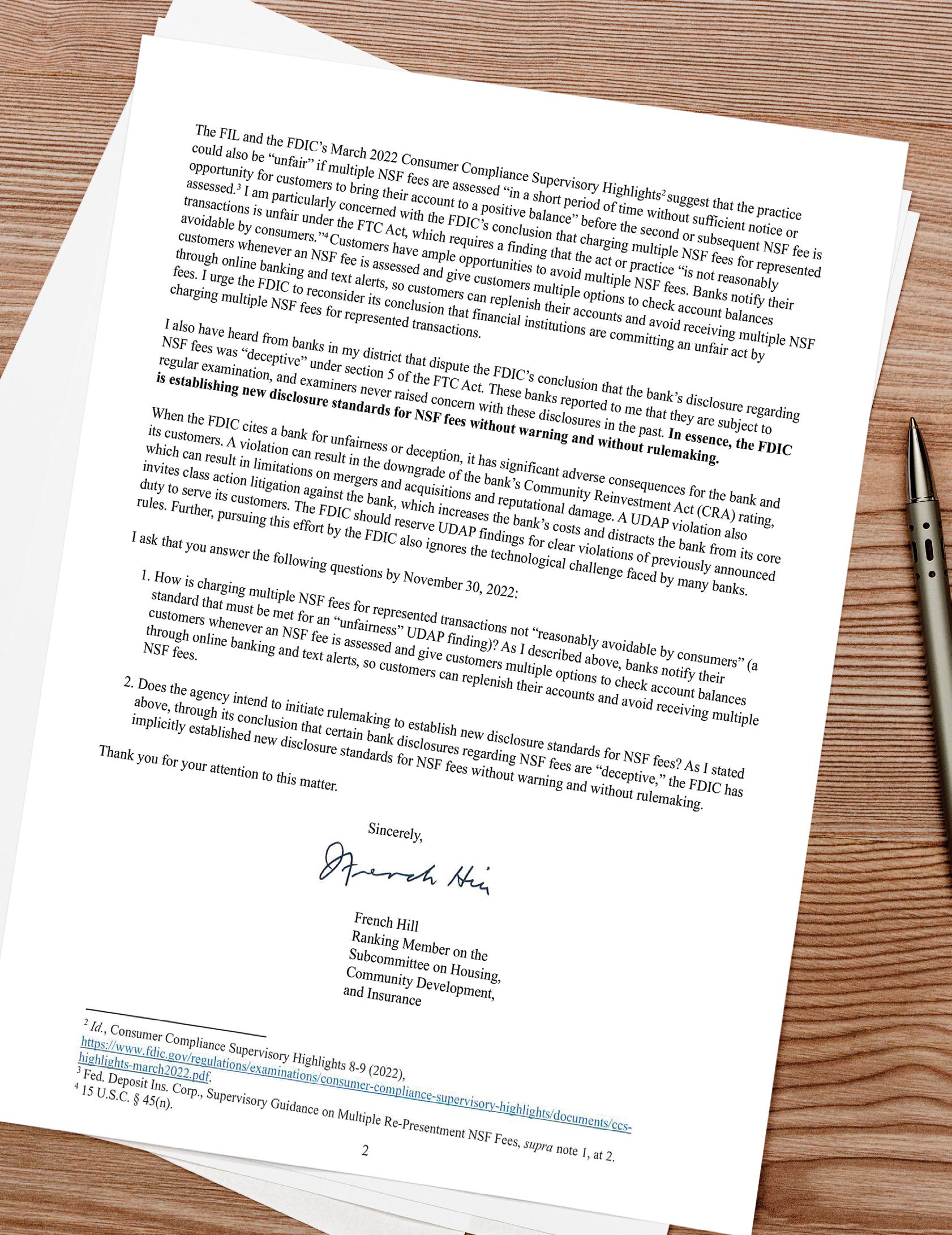
1 minute read
How Will Re-Presentment be Resolved?
by Roby Brock
Arkansas bankers are well aware of the FDIC’s year-long increase in aggressiveness related to the issue of re-presentment.
This action happens when a debit card transaction is denied due to insufficient funds (NSF). When a retailer or business runs the transaction again, and the account is still in the negative, it is denied again by the bank. Banks don’t have control over when the transaction is “re-presented” for payment.
The Federal Deposit Insurance Corp. has been warning banks that it will consider enforcement actions if the banks it supervises are repeatedly charging NSF fees for the same transaction. In recent months, the FDIC has issued guidelines that these multiple NSF fees on the same unpaid transactions could be violating the Federal Trade Commission Act, which prohibits "unfair or deceptive acts or practices."
That spawned a letter from U.S. Rep. French Hill to the FDIC’s acting director and chairman Martin Gruenberg. Hill asked Gruenberg for clarification on how re-presentment is an “unfair or deceptive” act and he requested an explanation of how the agency could move forward with this interpretation without rulemaking, much less an act of Congress.
As of press time, Gruenberg had not responded to Hill’s request. You can read Hill’s initial letter on the following pages.









